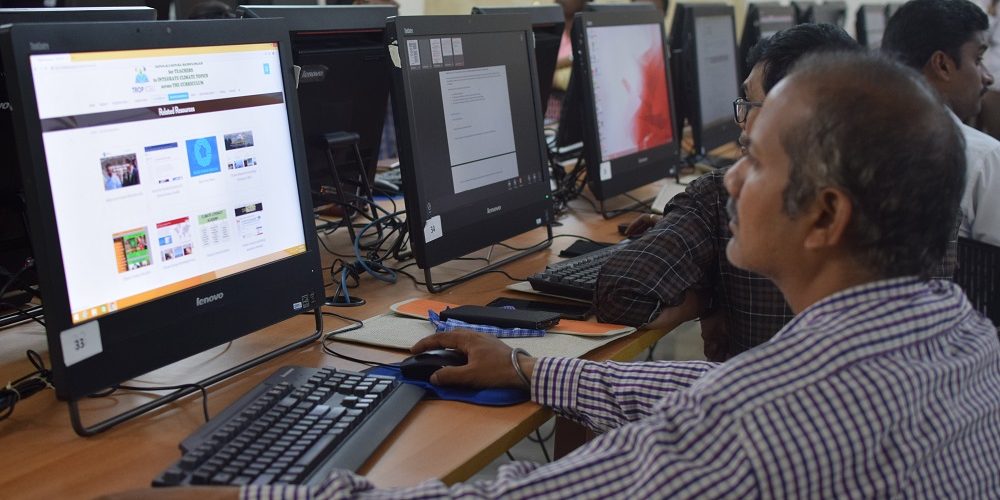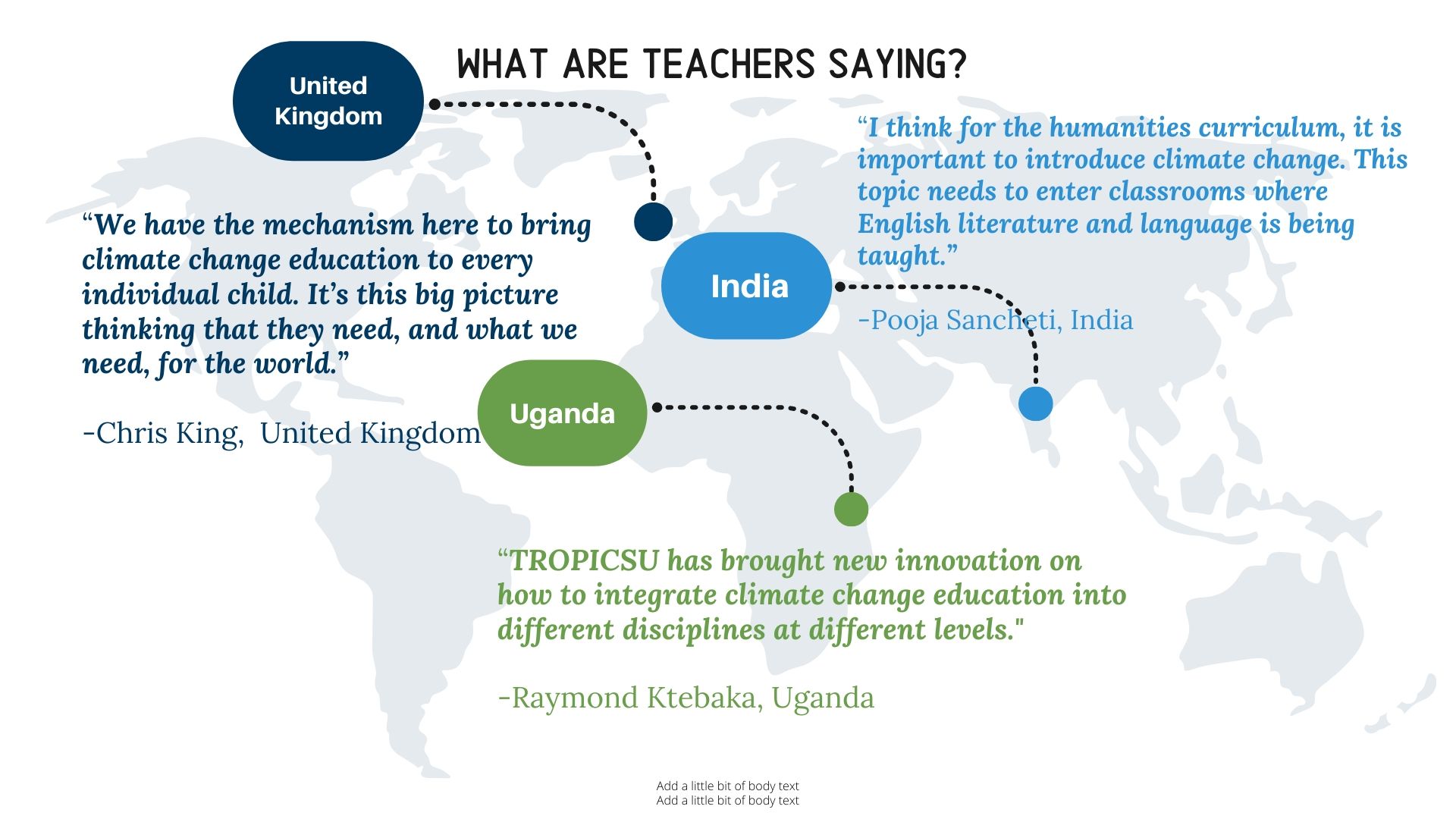
Education is one of the most critical elements in the global response to mitigate climate change. The quality of life for future generations and planet itself is largely dependent on the quality of education that we bestow on today’s students.
Climate change continues to ravage sustainable and equitable development, biodiversity, and increases global conflict. Addressing climate change through an effective education method is a fundamental step in achieving the United Nations Sustainable Development Goals.

‘It is important that every citizen in the world is aware of the cause and impact of climate change,’ says L.S. Shashidhara, TROP ICSU Coordinator. ‘We need to educate them as part of a formal education system. This is what the project is aiming to do. We want to bring climate change into the core curriculum.’
‘Climate change will have very different impacts on very different parts of the world. Every part of the world has to look for their own sustainable solutions.’
Despite the fact that the ISC Grants Program ended in 2019, TROP ICSU has significant plans for the future. ‘We want to translate the lesson plans to as many languages as possible,’ Shashi says.
‘Teachers get excited about teaching in their own language. It allows for more creativity and to develop lesson plans that correlate to the local culture.’
People in different countries experience climate change differently – for some, climate change means higher levels of water in the village river. For others, it means the extinction of a certain type of butterfly. By using teaching plans in local languages, teachers will be able to make climate change tangible and applicable in the regions that they are teaching.
‘Climate change will have very different impacts on very different parts of the world,’ Shashidihara explains. ‘Every part of the world has to look for their own sustainable solutions.’
Looking into the future, Shashidihara wants to organize more teaching workshops in different parts of the world, as well as create engaging video lesson plan guides for teachers to use in addition to the teaching tools and lesson plans.

‘This is not a secure world that we are living in as citizens,’ says Aditi Dusane, a Bachelors student of Environmental Science, at the Savitribai Phule Pune University, in Pune, India. ‘Awareness is a step, but not enough.’ TROP ICSU provides the opportunity to bring personalized, tangible education on climate change to every individual child, in every country in the world. With knowledge, comes power, and with power, comes change.

The International Science Council established the Grants Programme as a new modality to create international initiatives led by the ISC Member Unions. Its intent is to foster membership engagement by addressing long-standing priorities for ISC members in developing science education, outreach and public engagement activities, and to mobilise resources for international scientific collaboration. As a part of the effort in advancing science as a global public good, TROP ICSU maps its goals with the one of the goals by ISC, ‘Amplifying Impact through Outreach and Engagement.’
The project is led by the International Union of Biological Sciences (IUBS), and the International Union for Quaternary Research (INQUA) is the co-lead partner.